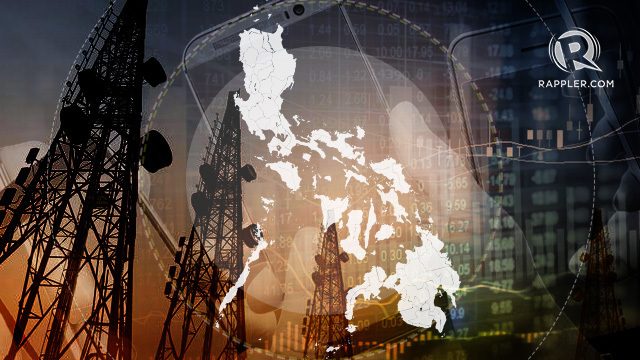SUMMARY
This is AI generated summarization, which may have errors. For context, always refer to the full article.

Editor’s note: An earlier version of this story reported that House Bill No. 78 would legalize full foreign ownership of public utilities instead of public services. This has been corrected.
MANILA, Philippines (UPDATED) – The bill that would legalize 100% foreign ownership of public services in the Philippines may have been passed by the House, but several ranking legislators strongly opposed what they described as an “anti-Filipino” measure.
House Minority Leader Bienvenido Abante Jr and Senior Deputy Majority Leader Jesus Crispin Remulla both voted no to House Bill (HB) No. 78 on Tuesday, March 10, arguing that it violates the 1987 Constitution.
“Not only is House Bill 78 unconstitutional; it is also anti-Filipino…. House Bill 78 is a great disservice to the Filipino people,” Abante said as he explained his opposition to the measure.
He then cited the 1997 Supreme Court ruling in the National Power Corporation vs Court of Appeals case, where the justices defined a public utility as “a business or service engaged in regularly supplying the public with some commodity or service of public consequence such as electricity, gas, water, transportation, telephone or telegraph service.”
“Can Congress overturn a Supreme Court interpreting the Constitution?… Public use is not synonymous with public interest. The true criterion by which to judge the character of the use is whether the public may enjoy it by right or only by permission,” Abante said.
If passed into law, HB No. 78 would amend Commonwealth Act No. 146 or the Public Service Act to make a distinction between how public services and public utilities are defined. The measure also leaves out the 60-40 constitutional rule on foreign ownership for public services.
Under HB No. 78, public services are those which are “non-rivalrous or imbued with public interest,” such as:
- Marine repair shop
- Wharf or dock
- Canal
- Public market
- Irrigation system
- Gas
- Electric light
- Heat and power
- Water supply and power
- Petroleum
- Sewerage system
- Telecommunications system
- Wire or wireless communication system
HB No. 78 then limits the definition of public utility to any person or entity that operates, manages, or controls for public use the distribution of electricity, transmission of electricity, water pipeline distribution, and sewerage pipeline.
For Remulla, the framers of the Constitution wanted to protect the things that must exclusively be enjoyed by Filipinos, yet HB No. 78 was disregarding that.
“Isang ehemplo: telepono at Internet. ‘Di ba’t ang telepono’t Internet ang siyang umookupa sa buhay natin, mula sa paggising, ‘pag tayo ay nagbabasa, ‘pag tayo’y tumitingin sa mga research, ‘pag tayo’y tumitingin sa balita? Ngunit ano’ng nangyari? Ngayon gusto nating ibigay ang mga bagay na ito sa mga dayuhan,” the Cavite 7th District congressman said.
(One example: telephone and internet. Aren’t the telephone and the internet things that occupy our lives, from the time we wake up, to when we do research and read the news? But what has happened now? Now, we want to give these things to foreigners.)
“Sana po mag-isip-isip po tayo. Hindi ito ang solusyon sa ating problemang pang-ekonomiya,” he added.
(I hope we’ll think this through. This is not the solution to our economic problems.)
House economic affairs committee chairperson Sharon Garin, who sponsored the bill in the plenary, previously said HB No. 78 would help improve the “deplorable state” of the Philippines’ public services by giving more leeway for foreign direct investments. – Rappler.com
Add a comment
How does this make you feel?
There are no comments yet. Add your comment to start the conversation.